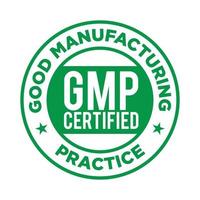As pet owners, we strive to keep our pets as healthy as possible. One way to enhance our pets' health is by adding supplements to their diet.
What Are Pet Supplements?
Simply put, supplements are anything you give your pet outside their regular diet to improve their health by adding nutritional or therapeutic benefits. There are many different types of supplements on the market. Some commonly used supplements include vitamins, minerals, probiotics, enzymes, herbs, joint supplements, and more.
Types of Pet Supplements
Pet supplements are typically categorized into one of the following groups:
- Joint Health
- Fatty Acids
- Daily vitamins
- Calming Aids
- Digestive Health
- Skin & Coat Health
All of these supplements can benefit your dog in different ways. Many owners opt to keep their dogs on multiple supplements to provide all the various benefits that each one offers. Our website has categorized types of pet supplements into different sections, so you can easily choose pet supplement products within the category that you want.

Choosing The Right Supplement For Your Pet
Commercially prepared foods with the AAFCO statement are specifically formulated to meet your pet's minimum nutrient requirements. In some cases, pets should be getting most of their nutrition from their food. However, supplements are added to a pet’s diet to provide a specific benefit or correct a deficiency in a diet.
Supplements can potentially provide added benefits to your cat’s and dog's health and body, even though they might look healthy. However, if you are feeding your pet a home-prepared diet, it will be necessary to add certain supplements to balance the diet. While feeding a balanced diet creates a foundation for good health, adding supplements can provide additional benefits to help your pet thrive.
What If My Pet Has an Unexpected Reaction to a Supplement?
In most cases, supplements have a very large safety margin. This means that they are incredibly safe; generally, the worst outcome is that they simply won't work or provide any additional benefit. If your pet has allergies, read both the active and inactive ingredients on the label to ensure that your pet isn't allergic to anything included in it.
If your pet has an unexpected reaction to a supplement, you should immediately report it to your veterinarian. In the rare case of a severe reaction, don’t hesitate to take your pet in for emergency care.
What To Look For On A Label?
At a bare minimum, the label should contain:
- Manufacturer
- Lot #
- Expiration date
- Nutritional analysis of active ingredients
- List of inactive ingredients, if any
Quality Assurance and Quality Control in Pet Supplements
In 2001, the National Animal Supplement Council (NASC) was formed to bring changes to the animal health supplement industry and establish nationally consistent regulations for supplements. When looking for a pet supplement, look for the yellow Quality Seal on the bottle. The Quality Seal means that the company has successfully passed a comprehensive third-party audit and passes rigorous quality requirements.

In addition to yellow Quality Seal, you should also look for a GMP-Certified seal. This Good Manufacturing Practice seal means the supplement was produced in an FDA-approved facility. This still doesn't mean that the supplement is FDA-approved. The GMP-Certified seal does mean that the facility follows rigorous preparation, manufacturing, and storage requirements that follow a higher quality standard.

How Do I Tell If A Pet Supplement Is Safe?
It’s important to read the ingredients carefully and look for either the NASC or GMP-Certified seal to ensure that the manufacturer is being held to high standards. You should also consult your veterinarian for their advice. Not only can they provide specific recommendations about types of supplements that your pet might need after examining your pet, but they might also have recommendations on vet-approved products or brands they tested.
How Effective Are Pet Supplements?
If you've followed all the guidelines outlined above, you're on your way to selecting a high-quality supplement that should help your pet.
However, most pet supplements also take time to build up in the body before you notice any changes. On the other hand, pets may experience positive changes even after the supplement has been discontinued. For example, joint supplements are given at a higher loading dose for 4-8 weeks before you see improvements.
Conclusion
It's best to start by providing your pet a good nutrition foundation by giving them a high-quality and balanced diet. Still, you may opt to give your pet a supplement to provide enhanced targeted support and benefits to specific bodily systems. It's best to do your due diligence by thoroughly researching the supplement to be sure that it will benefit your pet and pay close attention to your pet after giving them new supplement. And of course, our pet dietician could help you with recommendations and to answer your questions.
References
National Animal Supplement Council.
U.S. Food & Drug Administration. “Facts About the Current Good Manufacturing Practices (CGMPs).” June 1, 2021.
U.S. Food & Drug Administration. “FDA 101: Dietary Supplements.”

